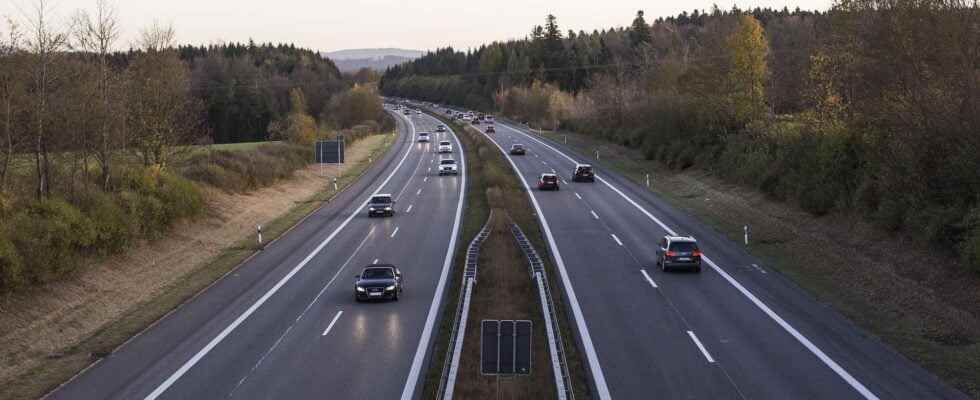The calculation of the average speed of motorists seems simple to solve. However, it is better to reflect… Here are two examples.
If you drive 100 kilometers at an average speed of 50 km/h then the following 100 kilometers at an average speed of 100 km/h, what is your average over the 200 kilometres? It seems logical to answer 75 km/h, the average between 50 and 100, but is it so sure?
Before answering, let’s think a bit. The important thing is to know in how long the 200 kilometers were covered. The first part of the trip took two hours and the second one hour, so the whole thing was three hours. The average speed is therefore 200/3 = 66.66 km/h, a little less than predicted by a hasty calculation.
The average we used is the harmonic meandifferent from the arithmetic mean.
What is the average speed of the two cars?
As the Paris/Marseille motorway is divided into eight consecutive sections of 100 kilometers each, we recorded the average speeds of two cars (A and B) making this route:
AT | 50 | 100 | 120 | 130 | 80 | 100 | 120 | 60 |
B | 60 | 70 | 130 | 130 | 120 | 120 | 130 | 40 |
What is the fastest car? What is its average speed?
Responnse :
Car A. To demonstrate this, we are interested in the travel time of each part. For A, this gives successively: 100 / 50, 100 / 100, 100 / 120, etc. The total time is therefore:
(100/50) + (100/100) + (100/120) + (100/130) + (100/80) + (100/100)+ (100/120) + (100/60) i.e. 1459 / 156. Speed is equal to the ratio of 800 to this number, i.e. 85.54 km/h. For B, we find 83.6 km/h. A is therefore faster than B, the opposite of what we obtain using the average arithmetic.
Learn more about Hervé Lehning
Ecole Normale Normale and maths graduate, Hervé Lehning taught his discipline for a good forty years. Crazy about cryptography, member of the Association of encryption and information security reservists, he has in particular pierced the secrets of Henri II’s cipher box.
- His blog MATH’WORLD on Futura
- the latest book by Hervé Lehning :
Also to discover: The universe of secret codes from Antiquity to the Internet published in 2012 by Ixelles.
Interested in what you just read?
Subscribe to the newsletter Fun math : every week, Futura deals with a math question for the enjoyment of 7 to 77 year olds. All our newsletters
